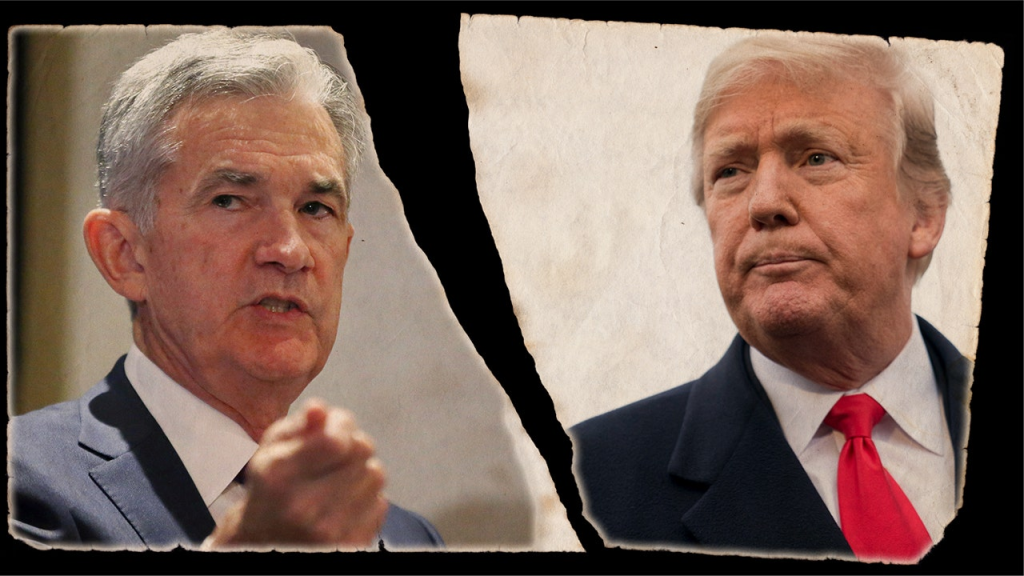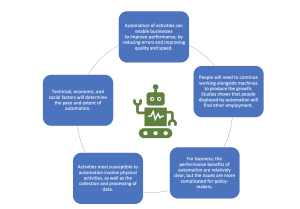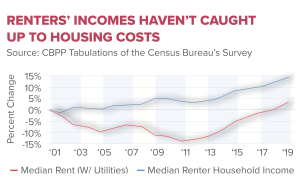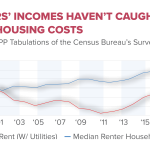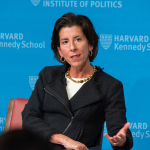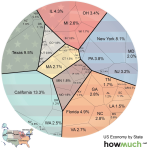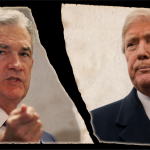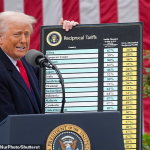Can Trump fire Fed chairman? This burning question has been at the forefront of political discussions, especially given the complex dynamics between President Trump and Jerome Powell, the Chair of the Federal Reserve. The Federal Reserve’s independence is crucial for maintaining balance in economic policy, yet Trump has expressed dissatisfaction with Powell’s leadership, particularly regarding interest rate policies. Market analysts have warned that Trump’s attempts to exert political influence over the Fed could jeopardize the institution’s autonomy and integrity. As the national economy grapples with challenges such as inflation and growth, the implications of such a move could resonate far beyond Wall Street.
The potential for President Trump to remove the head of the Federal Reserve raises significant concerns about the relationship between economic policy and politics. Speculation surrounding Trump’s interactions with Jerome Powell highlights a larger issue regarding the independence of monetary policy in the U.S. By considering the implications of such an action, one must also assess how it would affect the Federal Reserve’s credibility in managing inflation and shaping long-term interest rate policies. The tension between Trump and the Fed not only shapes their future interactions but also signals to markets how political decisions can influence economic stability. Ultimately, this unfolding narrative sheds light on the delicate balance between governance and monetary autonomy.
Can Trump Fire Fed Chairman?
The question of whether President Trump can fire the Federal Reserve Chairman, Jerome Powell, has been a topic of intense discussion among legal scholars and economists alike. The Federal Reserve Act of 1913 indeed states that board members can be removed for cause, but it does not explicitly mention the conditions under which the chair can be ousted. This ambiguity raises significant legal questions about the separation of powers and the independence of the Federal Reserve. Given that Powell was appointed by Trump himself, the implications of firing him during a term could destabilize the markets further, highlighting the delicate balance of political influence on the economy.
If Trump were to go forward with such an unprecedented move, it would likely trigger a significant market reaction. Economists suggest that the removal of a Fed chair, especially one who has been at odds with the administration’s policies, could lead to fears of the Federal Reserve losing its independence. Market participants typically prize the Fed’s autonomy when it comes to interest rate policies, reflecting the necessity for the central bank to decide on monetary policy devoid of political pressure. As history has shown, a departure from this norm could result in severe economic consequences.
The Role of Federal Reserve Independence
Federal Reserve independence is a cornerstone of U.S. monetary policy, ensuring that decisions regarding interest rates and inflation targets are made based on economic data rather than political motivations. This separation is intended to maintain the Fed’s credibility and prevent short-term political pressures from dictating long-term economic strategies. When a president expresses the intent to fire a Fed chairman, it can undermine this independence, prompting widespread concern among investors and economists alike. Such shifts could lead to uncertainties in interest rate expectations, creating volatility in the financial markets.
Moreover, the steadfastness of the Federal Reserve in pursuing its mandate to manage inflation and support maximum employment is crucial in times of economic instability. By protecting its leaders from political removal, the Fed can prioritize economic indicators over the administration’s immediate political needs. As we analyze Trump’s controversial interactions with Powell, it reflects a broader conversation about how political influence can impact the economy and the actions that central banks might take in response to political pressures.
Impact of Firing the Fed Chairman on Markets
The potential implications of firing the Fed chairman extend well beyond the walls of the Federal Reserve itself; they can ripple through global financial markets. When uncertainty surrounds the leadership of the Fed, investors are likely to react swiftly, leading to fluctuations in stock prices and bond yields. Historically, markets have shown a propensity to jitter at signs of political interference in the central bank, fearing that such moves can lead to a more accommodative monetary policy that could trigger inflation.
Recent market reactions to Trump’s comments about interest rate policies and his relationship with Powell highlight the fragile trust that exists between the Federal Reserve and market participants. If investors interpret the firing of the Fed chair as a signal for a shift towards looser monetary policies, we could see rising longer-term interest rates and increased risk premiums. Such a scenario could adversely affect borrowing costs for consumers and businesses, potentially stifling economic growth.
Legal Considerations in Removing Powell
The legal framework surrounding the potential removal of Federal Reserve Chairman Jerome Powell involves aspects of the Federal Reserve Act and its interpretation by the courts. The 2020 Supreme Court decision in Seila Law reshaped understandings of ‘for cause’ protections for independent agency leaders, adding complexity to whether Trump could legally remove Powell. As analysts monitor the evolving legal landscape, questions about the constitutional limits of presidential power to dismiss appointees at independent agencies continue to surface.
In this legal quagmire, considerations of precedent and statutory interpretation come into play. The Supreme Court has traditionally upheld the ‘for cause’ protections for independent agency heads, leading to a reliance on these principles in legal arguments. Should the president decide to pursue removal, the ensuing legal battle could capture extensive public attention, serving as a litmus test for the extent of executive power in relation to independent agencies, and, by extension, the fate of the Federal Reserve’s autonomy.
Market Perceptions of Fed Leadership Changes
Market perceptions regarding the Federal Reserve’s leadership are significantly influenced by the political climate and the rhetoric surrounding potential changes. Analysts observe that if Trump were to remove Powell, markets would quickly interpret this as an intention to steer monetary policy towards a more stimulus-driven approach, which generally raises fears of inflation. Such perceptions could lead to heightened volatility as investors adjust their portfolios in anticipation of policy changes.
Moreover, maintaining Powell’s leadership may stabilize market expectations as he represents continuity in the Fed’s approach to managing inflation and employment objectives. A change in leadership, particularly under controversial circumstances, might disrupt the carefully calibrated expectations that investors have relied upon. This entrenchment of perception underscores the critical nature of the Fed’s independence and the dire consequences that can arise from even speculative discussions of leadership changes.
Jerome Powell and Trump’s Economic Agenda
The relationship between Jerome Powell and President Trump’s economic agenda has been tumultuous, marked by public disagreements over interest rate policies. Trump’s advocacy for lower rates has often clashed with Powell’s commitment to combating inflation, highlighting the tension between political aspirations and the Fed’s mandate to preserve economic stability. Analysts suggest that when presidential goals overly influence the central bank’s actions, it can erode trust among investors and result in long-term economic implications.
In the broader context, this dynamic raises questions about the appropriateness of political influence on the Federal Reserve. The perceived need for the Fed to align with the administration’s economic policies could jeopardize its reputation as an independent body. If Trump continues to pressure the Fed through rhetoric or potential action against Powell, it could set a troubling precedent for future administrations, potentially altering the landscape of U.S. monetary policy and further complicating the relationship between politics and economic management.
Long-Term Implications of Political Influence
The long-term implications of political influence on the Federal Reserve’s decision-making processes cannot be understated. Should Trump or any future president manage to successfully alter the composition of the Fed board, it may pave the way for a more politicized monetary policy. This shift could undermine the Fed’s effectiveness in curbing inflation or responding decisively to economic recessions. The markets may react not just to actual changes in policy, but to anticipations of the Fed caving to political pressure.
Moreover, the operational framework of the Federal Reserve relies heavily on its reputation for independence and objectivity. If elected officials appear to exert more influence over the central bank, it could precipitate a crisis of confidence amongst investors. This undermining of trust could raise borrowing costs and dampen economic activity, heralding a bleak outlook for economic recovery and stability.
Future of the Fed Under Political Scrutiny
Looking ahead, the future of the Federal Reserve under significant political scrutiny raises critical questions about its operational efficacy and independence. The uncertainty surrounding leadership changes, particularly as political dynamics continue to evolve, highlights the necessity for the Fed to maintain its stringent pursuit of economic principles over political expediency. This is vital not only for maintaining market trust but also for executing appropriate monetary policy decisions that can bolster economic stability.
As the political landscape changes, the Federal Reserve must brace itself for ongoing scrutiny and potential challenges to its independence. The risk that future administrations may seek to exert influence underscores the importance of reinforcing the legal frameworks that underpin the Fed’s operations. Strategies to uphold the Fed’s commitment to nonpartisanship are essential in fortifying its credibility, ensuring it continues to be viewed as a stabilizing pillar of the U.S. economy.
Frequently Asked Questions
Can Trump fire Fed chairman Jerome Powell?
While President Trump has expressed discontent with Federal Reserve Chairman Jerome Powell, firing him is legally complex. The Federal Reserve Act allows for removal ‘for cause,’ but the interpretation of this provision regarding the chair is debated. Any attempt by Trump to fire Powell could undermine the Fed’s independence and significantly impact market stability.
What is the impact of Federal Reserve independence if Trump fires Powell?
If Trump were to successfully fire Fed chairman Jerome Powell, it could jeopardize the Federal Reserve’s independence, leading to increased political influence on the economy. This could erode trust in the Fed’s ability to manage interest rate policies without political pressure, potentially resulting in market volatility.
What are the legal grounds for Trump to fire the Fed chairman?
The Federal Reserve Act permits governors to be removed for cause, but it’s unclear if this extends to the Fed chair. Legal interpretations suggest that the Supreme Court might have a significant role in determining whether the president can remove the chair for non-performance of duties, thus complicating Trump’s potential actions against Powell.
How would firing Powell affect interest rate policies?
Firing Powell could lead to a shift in interest rate policies, with potential for looser monetary policy to satisfy short-term economic growth goals. However, this may also lead markets to perceive the Fed as less credible in combating inflation, potentially driving long-term interest rates higher due to increased risk perception.
What is Trump’s past relationship with Jerome Powell and the Fed?
Trump nominated Jerome Powell to chair the Fed in 2017 but has since had a contentious relationship with him, publicly criticizing Powell for not cutting interest rates to stimulate the economy. This tension underscores ongoing conflicts between political leadership and economic policy-making at the Fed.
Could market reactions influence Trump’s decision on firing Powell?
Yes, market reactions play a crucial role. Analysts suggest that any attempt by Trump to fire Powell would lead to significant negative market reactions. The anticipated market instability serves as a strong disincentive for the president to pursue such action, particularly given Powell’s term is nearing its end.
What would it mean for the economy if Trump fires the Fed chairman?
Firing the Fed chairman could signal a shift towards more political influence over monetary policy, which might create uncertainty in the markets. This could ultimately disrupt investment decisions and economic stability, as the Fed’s role is to maintain a balanced approach towards inflation and growth, independent of political pressures.
Is there a precedent for a president firing a Fed chairman?
Historically, there is no precedent for a U.S. president firing a Federal Reserve chairman. The Fed was designed to operate independently from political influence to prevent short-term economic pressures from dictating long-term monetary policy and to maintain credibility in managing inflation.
What would be the long-term effects of Trump firing Powell?
Long-term effects could include diminished credibility of the Federal Reserve, heightened political risk in economic decision-making, and potential increases in inflationary pressures as the central bank could be seen as more susceptible to executive influence. This could create a challenging environment for maintaining stable economic growth.
How does the Supreme Court’s view affect Trump’s ability to fire the Fed chairman?
The Supreme Court’s interpretation of executive power over independent agencies like the Federal Reserve will heavily influence Trump’s ability to fire Powell. Recent trends suggest the Court may favor broader executive authority, but the unique status of the Fed complicates any straightforward application of this power.
| Key Point | Details |
|---|---|
| Trump’s Relationship with Powell | Tense; Trump accused Powell of not being aggressive enough in cutting interest rates. |
| Legal Possibility of Removal | The Federal Reserve Act allows for removal of governors ‘for cause’, but unclear if this applies to the FOMC chair. |
| Impact on Markets | Potential removal could undermine Fed’s credibility and increase long-term interest rates, causing market instability. |
| Supreme Court’s Stance | Recent rulings raise questions about the extent of presidential removal power over independent agency heads. |
| Consensus in Federal Reserve Board | Chair plays an important role but does not have dictatorial power. Consensus is vital for policy decisions. |
| Market Reaction to Appointment | Identity of a successor matters, but removal itself could signal a shift to a looser monetary policy. |
Summary
Can Trump fire Fed chairman? The question of whether President Trump can dismiss Federal Reserve Chairman Jerome Powell revolves around complex legal interpretations and potential market repercussions. Although the law suggests governors can be removed for cause, the specifics about the chair’s protection from dismissal remain vague. Any attempt to remove Powell could generate significant market turmoil, undermining the Federal Reserve’s credibility and leading to increased interest rates. Given the vital role the Fed plays in economic stability, the implications of such a decision could echo far beyond the immediate political context.
